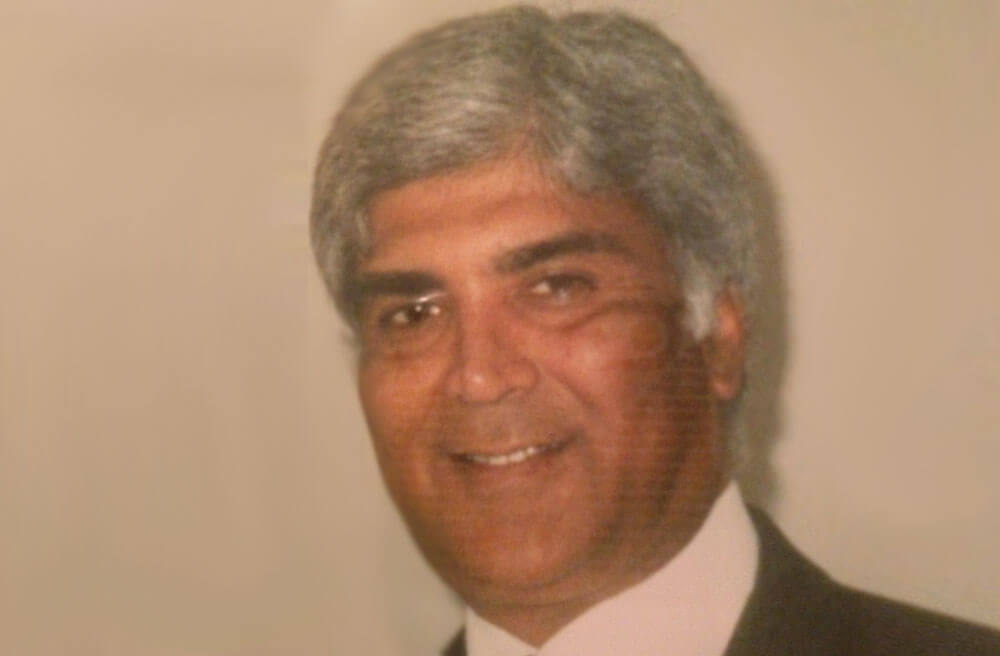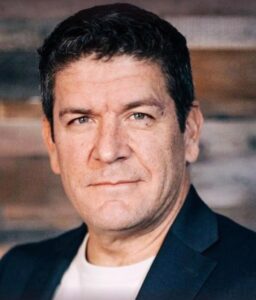Photo: Ray Asrar, Randy’s Lyft driver with whom he discussed immigration issues for this piece.
I drive for the ride-hailing services Lyft and Uber. Aside from the income it brings in, doing it also provides me with the opportunity to meet new people from all walks of life. Given that this is one of my favorite things to do, it’s a win-win.
That also means that I’m inclined to talk up my drivers when I use these services myself. A few months ago this led to a wonderful interaction, and a new friend.
This new friend isn’t much like me. Aside from driving for Lyft, we don’t share a lot in common. Rafat Asrar came to the U.S. from Pakistan in 1979, before I was even born. “Ray,” as his friends call him, has also been a registered Republican since he became a naturalized citizen around 35 years ago, voting pretty reliably with the Republican Party for most of that time.
In November, when I met Ray, I was heading to the airport, having just left a Braver Angels skills workshop I had helped to moderate. It was such an energizing experience that I couldn’t help but mention it to him when he gave me an opening, and we chatted all the way from Irvine, in Orange County, to LAX airport, in Los Angeles.
Our conversation was fairly rare for Lyft and Uber rides, given that we talked extensively about politics. Ray has been driving Lyft for much longer than I have been, and he confirmed that he usually avoids the topic unless a passenger, like me, brings it up. In fact, Ray has an extra sensitive antenna for when things might go south.
“I worked in mental health,” he said, “so I can feel those vibes coming in, and as I feel that, I change the conversation to something else.”
My approach is a little different—I use those situations as opportunities to practice my depolarization skills. I have moderator training from Braver Angels, and I’ve led several skills workshops that have reinforced my ability to de-escalate a discussion and get it back on track. Nonetheless, there are still challenging situations that can be tough to deal with. So real-world practice is invaluable.
It’s easy, though, when you’re talking to someone so open and sincere as Ray. Not only did we have a great conversation, but he agreed to a follow-up conversation so I could interview him more deeply.
Naturally, with much of the news focusing on the immigration debate, and with his immigrant background, it was a big focus of our discussion. On this topic, Ray’s views are more conservative.
“The country has a limited number of resources to accommodate the people who are coming in,” he said. “Infrastructure is crumbling. Roads, bridges, highways. And to allocate so much of resources to people who are crossing the borders illegally [is unwise].”
It’s also very understandable that someone who waited in line to come here would be put off by the image of people jumping that line.
“I came to this country legally. I obtained a visa, I paid the taxes. Why shouldn’t everybody else be doing the same thing?”
We came to agreement on several aspects of the immigration debate. Both of us feel strongly that there should be real enforcement of our immigration policies, so they aren’t just token statutes. But we were also able to learn from one another and expand our own views of the issue.
My personal experience, and what I’ve read on the issue, tells me that immigration is a huge net positive for the United States. At a time when the Trump Administration is not only cracking down on illegal border-crossers, but also restricting legal immigration, it feels to me like our entire national tradition is being undermined. Immigrants bring fresh perspectives, and generally boost our economy through taxes and spending; they are good neighbors as well, with lower rates of crime within their communities. One of my best friends owns a business and employs other people, despite being an undocumented immigrant.
Ray seemed to feel that my worldview hung together well here, and said as much. But he brought his own experience to bear in terms of abuses of the system.
“When I was calling on these medical offices for my work,” he said, talking about the CalOptima offices which provide indigent health care in Orange County, “I used to see people drive up in the latest Lexus and Mercedes-Benz, dressed very nicely, and you know, wearing very nice expensive jewelry. Why do you need the taxpayer to subsidize that?”
I’ll admit, this is a strange image to me, and I really have no idea how often this happens. If people are abusing the public benefits system in this manner, it indeed seems wrong. Obviously it’s an area that would warrant more research on my part to really understand how much “waste, fraud and abuse” is happening, though I have read that its impact is much less than is suggested by those who often bring it up as a major potential source of savings in government. But hearing about Ray’s experience certainly makes it a lot clearer to me why someone would feel so strongly about the issue.
Another area in which Ray gave me some useful perspectives is the question of what makes the United States special. A story he told me about showing some foreign friends around America encapsulated his view well. Ray told me that when he brought his friends to Reno, Nevada, they came to a stoplight in the middle of the night, with no one else around.
“They said, ‘Well, why don’t you go? Why are you stopping?’ And I said that’s what makes this country great. I know there’s no cop around, but it’s the respect of that law.”
I’ve certainly heard a lot about traffic patterns in other parts of the world, particularly India, where people don’t even respect the existence of lanes. Some of my business school friends visited India for a project, and came back raving about the vibrant and beautiful culture—but they also said the roads were utter chaos.
I think this speaks to something very strong in American culture about respect for the law. It also comes through with regard to our solid ethos around the payment of taxes, and commensurate respect for “the taxpayer.” During Greece’s currency crisis, I learned about many Greeks’ contempt for this civic duty, in which those who pay their taxes in full are often seen as suckers.
It was fascinating to hear this perspective from someone who grew up outside of American culture. As a native-born American, I can’t fathom ignoring traffic signals, or even cutting in line at the amusement park. But this cooperative spirit is something that I take for granted, and it serves to strengthen our communitarian bond.
In his book Identity: The Demand for Dignity and the Politics of Resentment, Braver Angels board member Francis Fukuyama talks about the strength of the “creedal identity” that has formed this country’s self-understanding, in contrast to the ethnic and religious foundations that exist in most other countries. He reminds us that immigrants to America are very distinctly aware of this identity of ours because of the sheer contrast with those of their native homes, and they are distinctly reminded of this commitment to creed when given the chance to be naturalized, during the swearing-in procedure at naturalization ceremonies.
Discussing these things with Ray has been both a challenge to, and an affirmation of, my progressive convictions regarding immigration. He reinforces to me that immigration is what has made this country so strong, by bringing fresh perspectives on the freedoms and responsibilities we hold so high in this country. But he also reminds me that we must be neither too stingy nor too generous with extending those rights and responsibilities to others. Those who wish to join us in this great American experiment must absolutely be willing to embrace not just the benefits of being an American, but also the values.
Ensuring that we know who joins us here is a vital way to do that. As a progressive, I put more emphasis on giving our immigration officers the resources to process and integrate people legally, rather than the resources to keep them out. But I believe the shared insistence on this embrace of our values as the major criterion to come here is an idea that cuts across the whole political spectrum, and can help to reinforce the common bond those values engender between reds and blues.
I appreciate the reminder from Ray that there are different perspectives out there informed by different experiences. And I think the more we surround ourselves with people with different perspectives, the stronger we become as a nation.
Randy Lioz is the Southern California State Coordinator for Braver Angels, as well as a regular moderator of red-blue and skills workshops. He has spent his career in the auto industry as an analyst, consultant, writer and educator. Randy lives in Irvine, CA, and spends much of his time in front of a soccer goal or beside a friendly mutt. His column, The Lioz Letters, is published weekly at The Conversation.




